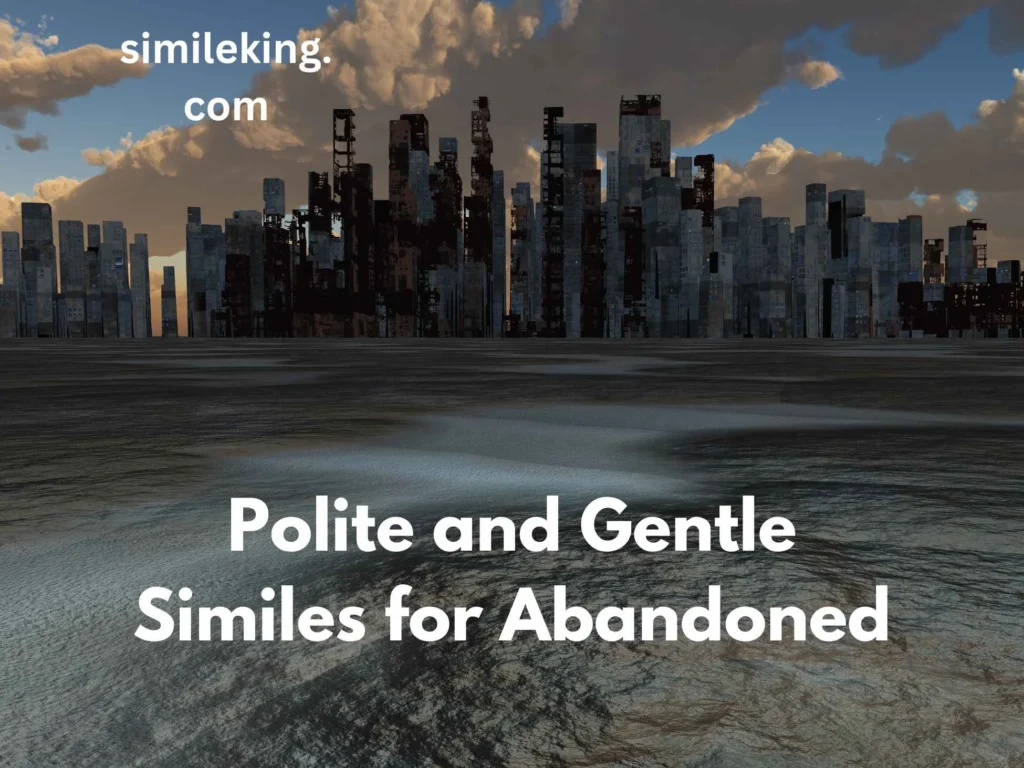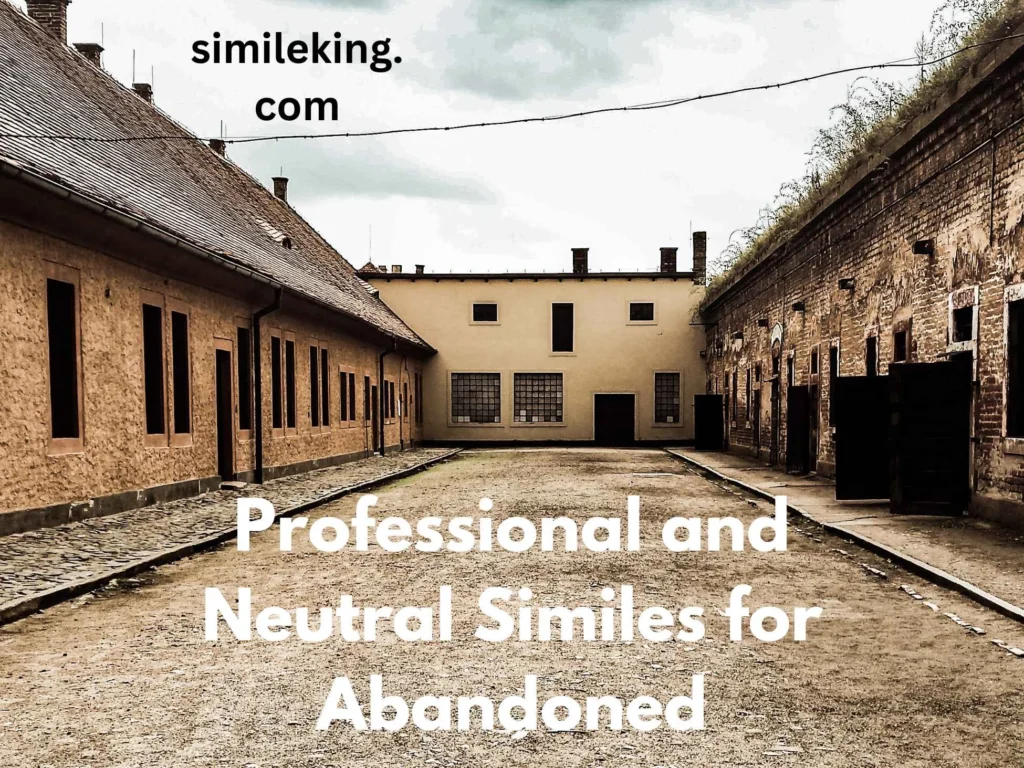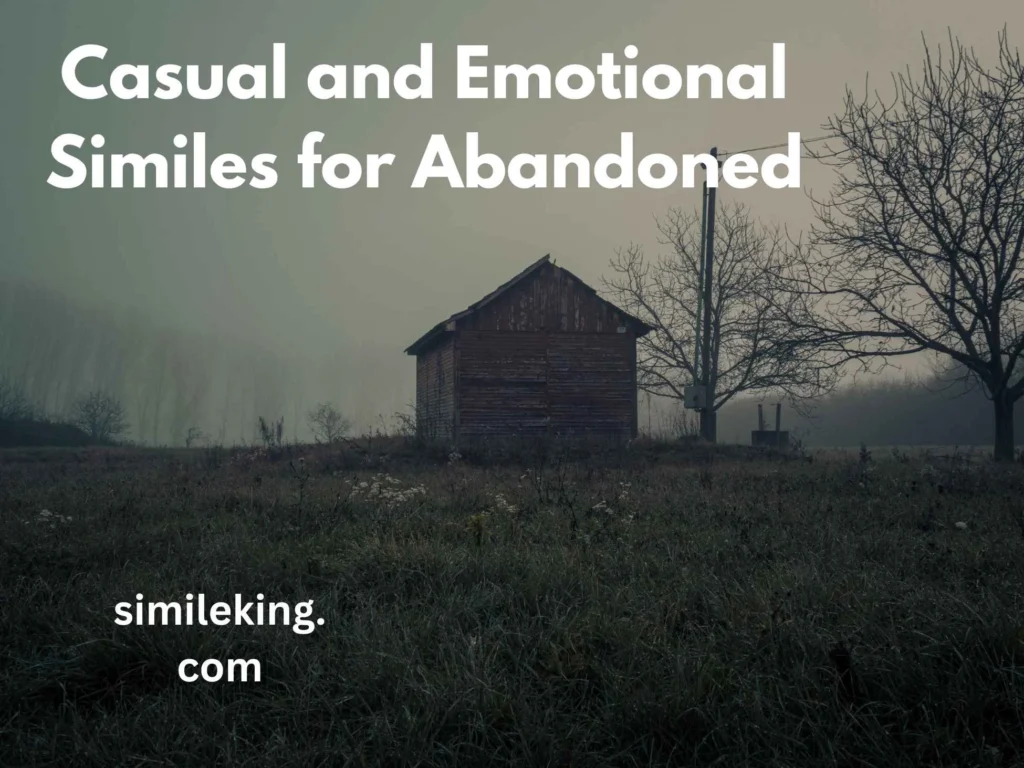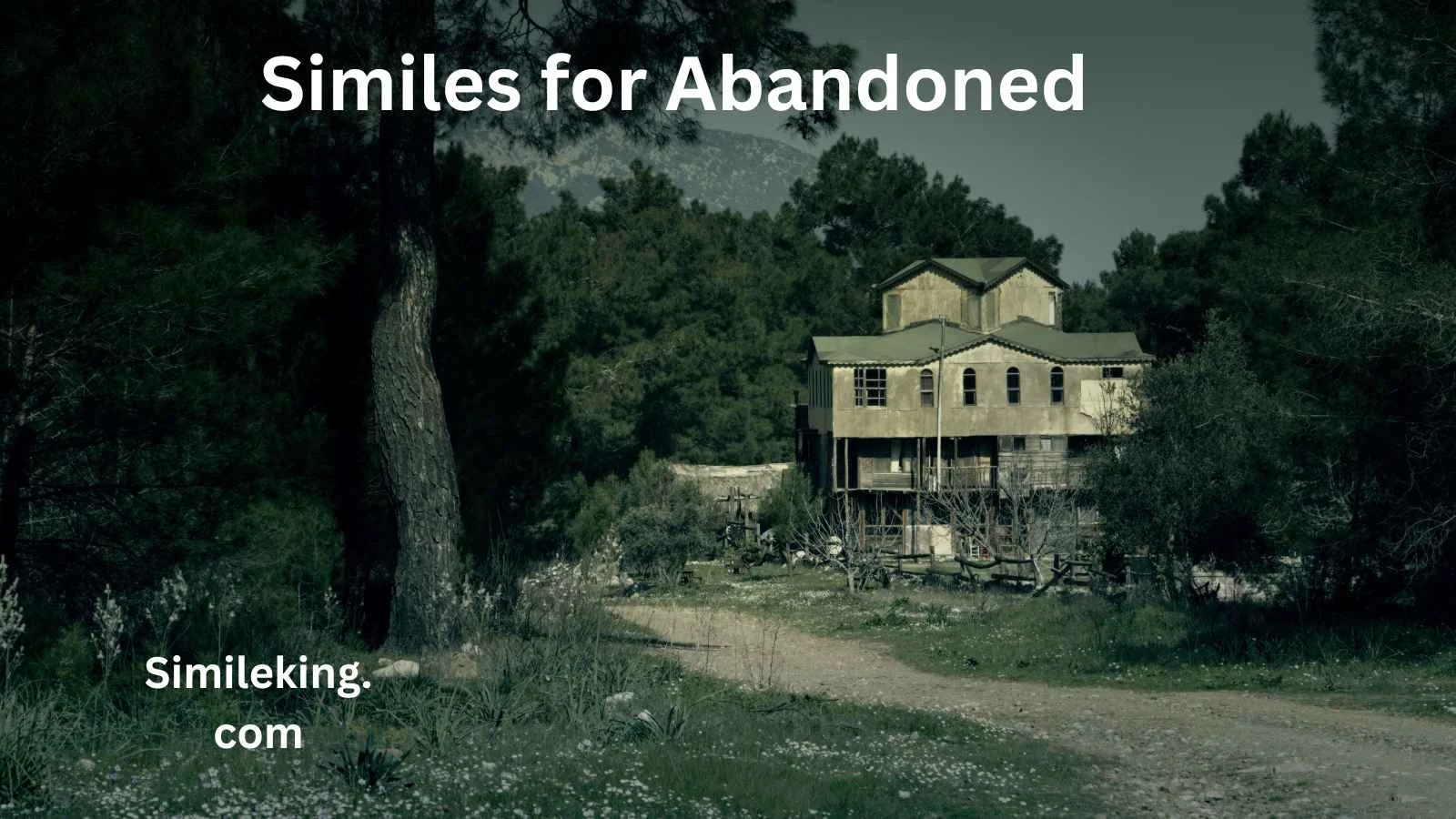Abandonment is a powerful feeling, evoking emotions ranging from loneliness and neglect to isolation and desolation. Using similes to describe the state of being abandoned can add depth and vividness to your writing, speech, or conversations. Whether you want to express this in a professional report, a heartfelt poem, or a casual chat, having a variety of similes helps convey your message clearly and empathetically.
This article explores 25+ similes for abandoned along with polite, professional, and casual alternatives. It will guide you through choosing the right tone depending on the context and offer practical texting examples to use in everyday conversations.
What Is a Simile?
Before diving into the similes themselves, it’s important to understand what a simile is. A simile is a figure of speech that compares two different things using the words “like” or “as” to highlight a particular quality or effect. For example, “as lonely as a deserted island” paints a vivid picture of isolation by comparing loneliness to an uninhabited place.
Similes enrich language by making abstract feelings more relatable and concrete. When expressing abandonment, similes help the listener or reader visualize and feel the emotional weight.
Why Use Similes for “Abandoned”?
The word “abandoned” itself is strong, but sometimes it lacks nuance or emotional subtlety. Using similes can:
- Create empathy: Help others understand the depth of abandonment.
- Add poetic beauty: Useful in literature, speeches, or even social media.
- Convey mood and tone: Adjust intensity based on the situation.
- Enhance communication: Make your writing or speech more engaging.
Categories of Similes for Abandoned
To suit different settings and audiences, similes for “abandoned” can be divided into:
- Polite and Gentle Similes: Suitable for sensitive or formal situations.
- Professional and Neutral Similes: Ideal for business, academic, or journalistic contexts.
- Casual and Emotional Similes: Great for everyday conversations, creative writing, and informal chats.
25+ Polite, Professional, and Casual Similes for Abandoned
Polite and Gentle Similes for Abandoned

These similes soften the impact, suitable for empathetic or sensitive communication:
- As quiet as an empty chapel
Suggests solemn, peaceful emptiness without harshness. - Like a garden left untended
Implies neglect but with a gentle, natural image. - As still as a forgotten room
Conveys calm desolation without being harsh. - Like a letter left unopened
Symbolizes being overlooked or ignored with subtle sadness. - As lonely as a lone cloud drifting
Evokes gentle solitude with a poetic touch.
Professional and Neutral Similes for Abandoned

These are suitable for formal reports, journalism, or academic writing:
- Like a building stripped of its occupants
Neutral but vivid imagery of emptiness. - As desolate as a deserted warehouse
Conveys abandonment in a straightforward, objective way. - Like a project left incomplete
Implies neglect without emotional charge. - As isolated as a remote outpost
Highlights separation in a professional tone. - Like an archive gathering dust
Suggests neglect and disuse in an analytical manner.
Casual and Emotional Similes for Abandoned

These evoke strong feelings and work well in everyday conversations, social media, or creative writing:
- As empty as a hollow shell
Conveys deep emptiness emotionally. - Like a ship lost at sea
Suggests vulnerability and isolation. - As forgotten as an old song on the radio
Nostalgic and emotional. - Like a child left in the rain
A powerful image evoking sympathy. - As cold as a winter’s night without fire
Emotional and vivid. - Like a heart left on read
Modern, relatable imagery for feeling ignored. - As abandoned as a swing set with no children
Childhood innocence contrasted with neglect. - Like a shadow fading at dusk
Suggests gradual disappearance or loss. - As hollow as an empty street at midnight
Creates a vivid emotional picture. - Like a book gathering dust on a forgotten shelf
Evokes neglect and emotional distance.
Nuances of Tone: How to Choose the Right Simile
The context and audience determine which simile is most appropriate.
- Use polite similes when addressing sensitive topics, such as mental health, grief, or loss, where compassion is needed.
- Professional similes fit reports, news articles, or academic papers where clarity and neutrality are key.
- Casual similes work best for personal conversations, creative writing, or social media posts where emotional expression is welcomed.
Examples: How to Use Similes for Abandoned in Sentences
Here are examples illustrating different tones:
- Polite: “The old family home now stands as quiet as an empty chapel, evoking memories without intrusion.”
- Professional: “The factory, like a building stripped of its occupants, tells a story of economic decline.”
- Casual: “After the breakup, he felt like a ship lost at sea, directionless and alone.”
9 Texting Examples Using Similes for Abandoned
Texting is informal yet personal, so a balance of casual and polite tones works best. Here are 9 user-friendly texting examples optimized for Google search intent:
- “Hey, feeling like a hollow shell today… just wanted to let you know.”
(Casual, emotional) - “It’s been a lonely week, like a garden left untended.”
(Polite, gentle) - “After everyone left the party, the place was as quiet as an empty chapel.”
(Polite, descriptive) - “Sometimes, I feel like a letter left unopened—ignored and forgotten.”
(Casual, emotional) - “The office feels like a deserted warehouse on Fridays!”
(Professional but casual) - “Ever felt like a swing set with no kids? That’s me right now.”
(Casual, nostalgic) - “Our team project is as abandoned as a book gathering dust on a shelf.”
(Professional, metaphorical) - “After the fight, I was like a child left in the rain — totally lost.”
(Emotional, casual) - “The town was as hollow as an empty street at midnight when I visited.”
(Polite, vivid)
Tips for Using Similes Effectively
- Match tone with audience: Don’t use harsh or emotional similes in professional contexts.
- Keep it relevant: Use images familiar to your audience for better impact.
- Avoid clichés: Try to use fresh, vivid comparisons rather than overused phrases.
- Balance creativity and clarity: Make sure the simile enhances understanding rather than confusing the reader.
Conclusion
Similes are powerful tools to express the feeling of abandonment in a way that resonates emotionally and intellectually. Whether you’re writing formally or chatting informally, choosing the right simile helps convey the depth of loneliness and neglect with clarity and empathy.
From gentle and polite to vivid and emotional, the 25+ similes for abandoned offered here provide versatile options to enrich your language. Use the texting examples as a starting point for your conversations, and adapt similes as needed to fit your unique voice and context.
By embracing these figurative expressions, you can transform simple feelings of abandonment into compelling narratives that truly connect with others.


